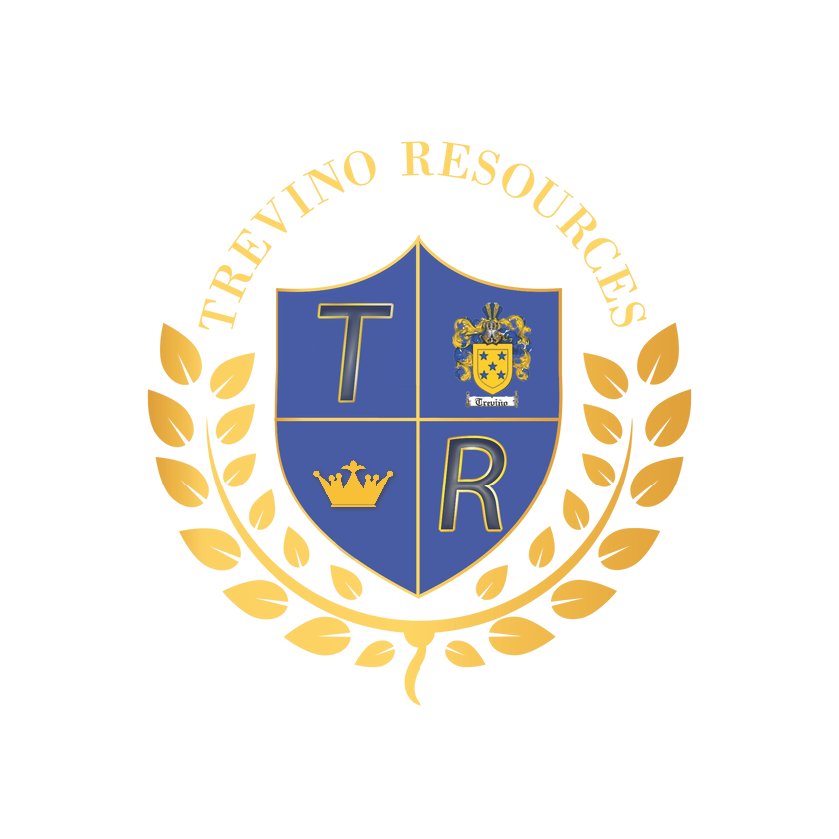Please reach out to Kristy Kerns on LinkedIn

Check out StatusJet HERE
THE CRUDE TRUTH Ep. 99 Richard Wilson CEO, The Family Office Club
Video Transcription edited for grammar. We disavow any errors unless they make us look better or smarter.
Rey Treviño [00:00:00] There’s no doubt about it. The ultra wealthy are families here in America and across the world. What did they do to scale? And what do they do in real time to continue to be at the elite level that they are? We talked to an expert on this episode of The Crude Truth.
Narrator [00:00:17] In 1901 at Spindle Top Hill near Beaumont. The future of Texas changed dramatically. As like a fountain of fortune. Thousands of barrels of oil burst from the earth towards the sky. Soon Detroit would be cranking out Model T’s by the millions, and America was on the move thanks to the black gold being produced in Texas. Now, more than a century later, the vehicles are different, but nothing else has truly changed. Sure, there may be many other alternative energy sources like wind and solar and electric, but let’s be honest, America depends on oil and entrepreneurs. And if the USA is truly going to be independent, it has to know the crude truth.
Narrator [00:01:00] This episode is brought to you by LFC Chemistry. We are committed to being good stewards of the environment. We are providing the tools so you can be too. Nape Expo where deals happen. Air compressor solutions. When everything is on the line, air compressor solutions is the dependable choice to keep commercial business powered up. Sandstone Group. Exec Crue. Elevate your network. Elevate your Knowledge. Texas Star Alliance. Pecos Country Operating Fueling Our Future.
Rey Treviño [00:01:34] Hello as always, and thank you for tuning in to another episode of The Crude Truth here at the Crude Truth Studios at The Real News Office in the high rise of Dallas, Texas. And as always, with me is my co-host, Kristy. How are you?
Kristy Kerns [00:01:49] I’m doing great. How are you?
Rey Treviño [00:01:50] It has been a whirlwind of the last few weeks, but we’ve been doing great. And we have been. I have better words moving to do it. Yeah. How are you feeling?
Kristy Kerns [00:01:58] Amazing. Yeah, well, hair on fire, but all good.
Rey Treviño [00:02:02] You know what we’ll do? Some will douse tomorrow, and then we’ll keep moving forward, right?
Kristy Kerns [00:02:06] Yeah.
Rey Treviño [00:02:07] Man. You know, Kristy, one thing you and I have been doing now for almost, well, I guess almost a year are traveling, visiting with other families because, you know, we don’t we don’t talk too much. You know, we are a family business.
Kristy Kerns [00:02:18] Yes.
Rey Treviño [00:02:19] And we do want to scale over the next five years. What you and I have said down on numerous times to talk about. And so one thing we’ve been doing is traveling and visiting with other families and being in these groups of other families that are not only where we are, but where we want to go. And there’s other groups. I want to be where we are. Yes. It has been an amazing thing so far. Have you? I mean, what have you thought?
Kristy Kerns [00:02:43] I have loved it. Yes. Yes. Loved it so much. Just the family dynamic and traveling and meeting amazing people. And, you know, you have to be around people to get to where you want to go. And same people are following us to get where they want to go.
Rey Treviño [00:02:57] Right. And you always said that you want to create a network of great and like minded people, but but be like minded means also you got to the same values of church, not just we’re going to make a lot of money. No, that’s not that’s how we’re talk, you know? And so today we had a great opportunity. As I said, we’ve been traveling one of the groups we’ve been going around and visiting is the Family Office.
Kristy Kerns [00:03:19] Yes, I thoroughly enjoyed that.
Rey Treviño [00:03:21] They have been awesome. They hail out of Florida. They have Biscayne or. Yes. The area. That’s where the offices are. However, the CEO is coming in today and he’s coming in from his new homesteaded there. Why? Our guest today is Richard Wilson. Richard, how are you?
Richard Wilson [00:03:40] Great to have me here today.
Rey Treviño [00:03:42] My gosh. Well, thank you so much for coming on. When we when we had the opportunity, you know, we change schedules around a little bit to do.
Kristy Kerns [00:03:50] To do, that’s for sure.
Rey Treviño [00:03:53] So thank you so much. As our listeners and viewers just kind of heard, you know, we talked about you just a hair. But for our listeners out there, you know, I did my teaser about family offices, the ultra wealthy as being a term we office. Who’s Richard Wilson and what is the Family office club?
Richard Wilson [00:04:11] Sure. I started an investor club 17 years ago called Family Office Club. We’ve hosted 275 events. We have 7500 registered investors with us. We have written 13 books. We have just put out our 1,000th YouTube video with 14.6 million social media group members and followers. So we’re really an investor club, investor community. We put out tons of thought leadership to the space.
Rey Treviño [00:04:40] Well, yeah. And that thought leadership also comes with that thought experience. I mean, you were a thought leader and I’m going to use quotations before. Thought leader was a think again. You’ve been doing this for almost 20 years when investor groups and clubs were not really even thing I think or mainstream.
Kristy Kerns [00:04:58] Exactly.
Rey Treviño [00:04:59] And so I just think what you’ve been doing is awesome and you truly cater to the investors that are out there looking for certain investments, but also you do cater to the guys that are looking for those investors. You know, what is that been like in your journey? So to toggle that line between the two?
Richard Wilson [00:05:20] Yeah, really good question. I mean, it’s a nuance of our business model, right? And an investor club. What I’ve found is that by continually focusing on the needs of the investor and serving them well always attracts the people who are raising capital. So we’re trying to raise the quality every year instead of raising the quantity. We’ve done 1500 person conferences so we know exactly what that’s like. But we’re finding that having a, you know, 3 to 400 person events with 120 speakers on the stage, there’s massive connections, massive learning, and it’s really about the quality and the genuine authentic connections versus going for filling up a football stadium of 60,000 people. How many of those are going to be credible, well-established business founders? You know, a little bit harder to pull that off. Really high quality at this really big. So I was trying to keep those couple of things in mind to be very investor focused.
Kristy Kerns [00:06:12] So you mentioned obviously your speakers on the panel. I have thoroughly enjoyed those. I let him work, though, but then I go and listen. How do you, like bring them on to Star when you had the athletes? Everything. How do you choose?
Richard Wilson [00:06:26] Sure. So what we try to do is have 70% plus of the speakers on stage. Let’s say we have 100 plus speakers. We want to have 70 plus of those be investors. We’re looking for heads of other investor clubs, professional athletes, center millionaires, billionaires, heads of large single family offices, heads of multifamily offices. And then we have angel investors and small private investors too. But I script every discussion with the panel. Question and my theory there is that I don’t want to be bored going to my own events. And after doing almost 300 of these, I’m just asking the questions that I am curious about. And then I’m betting that other investors in around would also want to ask those same questions. And then of course we open it up to the room for four questions on almost every discussion panel as well. But it’s very fast moving. We don’t have any hour long presentations on macroeconomics with a bunch of graphs and stats. We try to keep it super fast paced.
Kristy Kerns [00:07:21] So then also next question about the speakers. A lot of them have a story. Do you interview them before you bring them on stage? Because their story seems to obviously impact so many people that are in your audience.
Richard Wilson [00:07:34] Right? Right. Like we have the founder of The Sound of Freedom who’s, you know, saved over 6000 children, the founder of Keller Williams Real Estate. ET cetera. E Channel billionaire founder Larry lives on stage. So many of the people we have done business with or have gotten to know. And then we just found their story so fascinating. We thought our community would love to hear this story. So we’re looking at a billionaire is the only billionaire from Nepal just agreed to speak at our December event and he’s going to tell his story. And then we just contacted us, sent a millionaire today to maybe do a fireside chat at our October event. So really trying to find like the most exciting, interesting story possible because our our community, whether you’re raising capital or you’re an investor, you’re probably an entrepreneur or a founder. We do have executives that are investors and some people that inherited money, but most of us are founders and wealth creators. And and that’s really the common thread.
Kristy Kerns [00:08:27] Okay. And then my what speaks to my heart and you speak of it so tremendously is relationships, people. I mean, I think every single one of you talked about it’s not about this is what I’m offering. It’s all about building relationships. And that’s what creates this entity of doing business with people, because we’re not just selling a product. You’re selling yourself in that sense. And can you speak a little bit about that for me, please?
Richard Wilson [00:08:53] Sure. Yeah. I think investing is all about trust is what I’ve learned the last 17 years. And anybody can put anything on a piece of paper saying your IRR is something the payback period, your returns, your tax write off, depreciation on oil and gas asset, etc.. Anyone can say something on piece of paper. So all it really matters is do you really trust the team to do what they promised to do? Do you really trust the people and like the people? Are they going to do the right thing when things get hard? That’s what matters the most. If you’re in the market to buy a Rolls Royce and you’re going to the Dallas Fort Worth Airport and check into your your flagship check in area and someone comes up and says, hey, about this Rolls Royce, you want to buy it? You don’t know who they are. You said, sorry, I’m over here trying to catch my flight. Even if you’re literally looking for one. It’s all about the context and the trust, and that’s why meeting in person is so critical. So our goal is to become the number one ambassador club globally that has in-person events for that very reason to create relationships.
Kristy Kerns [00:09:52] Do you think that more entrepreneurs are business owners need to know more about that relationship aspect?
Richard Wilson [00:09:59] Yeah, for sure. I think that figuring out the background of someone and how you can add value to them varies. So many people come to an investor event and they’re looking to pitch like, Are you an investor? Let me picture you an investor like my pitch you. And it’s the wrong way to go about it because many people don’t have the name tag of I’m an investor or the CIO for my own daily office. They are a founder that owns bunch of real estate. They’re an entrepreneur that has many businesses and they’re earning seven figures a year in profit. So they are an investor, but they see themselves maybe as an entrepreneur or a founder. And if you just look at them like a piece of meat to invest in your fund, there’s going to turn off to that and take a time to get to know them. And if you didn’t add value to them and so they don’t really want to hear your random pitch, They really want to, you know, get to know people and trust them and see what expertise you have so that they can understand why they would want to hear any pitch, you know, from your group.
Rey Treviño [00:10:51] You know, you talk about getting to know people and then you mentioned this is why I have events. Let’s talk about your events. I mean, you’ve got them in Beverly Hills, New York City. And it’s like, you know, in the night, you know, in the nice places in New York City. Last year’s was in Fort Lauderdale. This year, you’ll have one in Biscayne, Florida, if I said it right. Let’s talk about your events and how they work and you know, and why you need other why do you would like to invite other investors there and investees.
Richard Wilson [00:11:22] Sure. Yeah. And I appreciate that. So the main hubs who have been hosting events in historically has been like the Beverly Hills, New York, South Florida. So the next one is in Brooklyn. And then after that would be that and Key Biscayne at the Ritz Carlton. And so going forward, we will be hosting four events a year in Hawaii as well. I just relocated here with my family to access some of the investors we’re working with in Asia a bit more easily. And then we’re going to be expanding to Sydney and Singapore in 2025. And so the benefit of coming to our events is you get to meet ambassador peers. You get to hear from 100 investors and peers on stage at the investor summits and you come away with maybe higher conviction on plans. You already had ideas around new niches. And since we’re all founders, really it’s all about electing what Charles Munger would say, your 100 plus mental models, your latticework like strategies and models that you can see what somebody else did and apply it to your niche or to your industry and always be tinkering and upgrading what you’re doing there. And that’s been one of the top takeaways from studying the billionaires and the ultra wealthy is that they’re always voracious learners sucking in information and they want to be number one and the niche that they’ve identified. And you do that by out learning others in your niche and taking more action usually as well.
Rey Treviño [00:12:41] Well, what I liked a lot and I liked your outlook. And if you want to be number one, you’re out learning your competitors and just studying your niche. I like that a lot. And you know, you talk about that you’ve been studying these ultra wealthy, the center millionaires and billionaires. Right now, you’re on a mission to read over 200 autobiographies of biographies by billionaires. And I think that’s something that’s awesome because. When you look at a billionaire that writes a book, it’s really like, why are they writing a book? They don’t need to do it for the PR or they don’t need to do it for a book deal. They’re doing it to truly sit down and just write their thoughts down. And I think that’s genius, what you’re doing. Can we talk about that a little?
Richard Wilson [00:13:28] Yeah. Yeah, for sure. So importantly, I’m not reading any books written about billionaires, only the books written by the billionaire themselves. And there’s only 240 of those. I’ve written 95 of them so far. I usually go on a walk at sunrise and. And listen to the books. The one I’m listening to right now as this Charles Schwab book called Invested. And so I listen to it at 3.5 X while I’m walking. And, you know, you’re an hour, hour and a half walk and you got basically four hours of billionaire ideas into your brain. And I’m trying to identify the top 50 bucks out of 240 and then the top 12 out of those 50. So I can study those 12 and know that like the back of my hand and just take a month, one month out of the year to study the book like very deeply. But the reason I’m doing that is that the more I study from the ultra wealthy, the more that I find that’s one of the top ten common threats is that they’re a voracious learner. And at a conference of 700 people, I said, raise your hand if you read 100 plus books about business and strategy. And many hands went up. But I said, raise your hand if you read more than ten that were written by a billionaire and only 1 or 2 hands went up in a room of 700 people, which means that most of us are reading books from people who are really good at marketing their books. Yeah. Really good business, you know, and that’s that’s a huge thing to keep in mind is like I looked up a stat yesterday, point 1% of people ever get their business to 5 million a year in revenue. That means that 99.9% of people that you talk to are not a business owner the same level as you, and they’re probably giving you advice so you don’t ignore most of it. You know.
Kristy Kerns [00:15:09] Be careful what you say, who you take advice from.
Rey Treviño [00:15:11] Yes. And I’ll say this since you said that I always joke and it’s like, do you want to be a millionaire? And again, I know you’ve written books, sir, and you’re on a different level, but it’s like you want to be a millionaire. You know, let me tell you how. Write a book. You know? Right. And it’s like, you know, you get a million people to buy it. You become a millionaire. And that’s why I wanted to highlight what you’re doing by, you know, reading these books written by the billionaires because, again, they don’t need to do it. And they’re just literally writing down their thoughts and unofficially sharing with them or sharing those thoughts. You know, either way, they want to look at it. I mean, I think the one right now you’re talking reading with Charles Schwab is got to probably be probably one of your better ones, I would just assume, by Charles Schwab and what he that.
Richard Wilson [00:15:55] It’s amazing it’s amazing he’s super detailed in the book. So many good insights I keep a little notepad app from Apple opener and then for every billionaire budget by the title as I’m walking or listening to it and traveling all I’ll jot down some shorthand notes to myself on what I took away from the book. I be completely different than what someone else gets away from it. Like I took 12 years to buy and negotiate purchase of billionaire icon. And I’m also interviewing 100 billionaires publicly on stage and via audio messages and an email, etc. So we interviewed Mark Cuban and Tony Robbins and Tim Draper and Matt Cardo and ET Cetera. And so we’re really before I used to go really deep. I like Evan Pay and O’Brien Tracy or Dan Sullivan and just go really really deep one mentor And now I’m looking at it more. Why don’t I learn from, you know, 200 plus billionaires who have written books and who will complete these interviews with me, you know.
Kristy Kerns [00:16:49] Per your ratings. Have you found any similarities with them for like notes? And we are taking notes. Any, like keywords thus far? Obviously, they’re all billionaires. How did they get there? Anything that struggled with or anything? But that
Richard Wilson [00:17:04] for sure some commonalities. One is it’s not work smart or hard. It’s work harder. It working smarter plus work harder than everyone else. You know, enjoy the work so you can work twice as hard and enjoy the process more. The other thing is to acquire strategic choke points and control distribution. Many times the person who is most innovative and gets traction and gets the network effect or has the most superior distribution has a really great chance of winning. And also, sometimes people comment like, didn’t the billionaires just get lucky? Or they like inherited a bunch of money and then got lucky, basically. And it’s really not true with almost all of them. They are self-made. They started out from the beginning with a plan to open 1000 Home Depots. Nobody wanted to find them. They almost went bankrupt many times. And now they have a thousand plus Home Depots and they’re billionaires. And so persistence, grit, innovation. And the last thing I’d say, which comes up again and again, is that they are so anti heard. It upsets them when people say, yeah, that’s the way everyone does it. They’re like, Good. We’re for sure not doing it that way. I don’t like my idea because it’s crazy and it’s not possible. Let’s lean forward on that idea because you try to copy what everyone else is doing. At best, you’re going to be copying the average. Yes. And so you’re not going to be ultra successful if you are doing what everyone else is doing that the right way that everyone accepts.
Kristy Kerns [00:18:30] Super powerful. Be different. That’s my motto. I don’t want to be like anybody else.
Rey Treviño [00:18:35] I know. Well, you.
Kristy Kerns [00:18:37] Know.
Rey Treviño [00:18:37] We are definitely a different duo here. But we we like to sit out and it’s like, what? What is working for us and how do we. I like that. You know, we definitely believe in work hard work smart. But also, you know, we talk about a lot of time. It’s like, do you enjoy what you do? So waking up every morning and enjoying what you do for a living and your career and you know, there isn’t a true work life 50/50. It’s all together and it’s mold. It’s mesh together, you know? So I like that a lot. Awesome.
Richard Wilson [00:19:12] Yeah, I think that one thing I found is that billionaires have to be supportive and giving and generous to their employees or they wouldn’t keep the employees or their partners, of course. And so the best sales pitch she can make to somebody is really the life you’ve lived the last ten years and how aligned your values are and their values and your mindset with their mindset. And so that’s one reason I moved out. Jeff Wise is ranked the number one healthiest state. It’s ranked the number one happiest state. And, you know, the price of an average house here, you could buy 20 Lamborghinis. But I don’t own a supercar. You know where I would instead rather give my kids and myself the gift of living in an outdoor adventure location and have an access to the Asian markets which are exploding in wealth. And so I think like being true to your own family values and then finding investors in like minded people that are founders just like you is a key to connecting and making relationships with investors.
Kristy Kerns [00:20:11] Values are everything and you are who you associate with no matter what that is, that you want to be our period, personal life or business. So
Rey Treviño [00:20:19] you know, as you studied it, I think that’s a great way to segue way to something else I wanted to talk with you about is I hear you’ve been studying these books and you’re now sharing that knowledge. You have your own mastermind group, is that correct?
Richard Wilson [00:20:34] Correct. I mean, we have our investor club has just two types of events. We have our investor summits and those are, you know, 3 to 700 people and 100 plus speakers on stage. And then we have our one day masterminds. So instead of a 2 or 3 day investor summit, it’s just one day, 10 a.m. to 4 p.m. and the masterminds invites and investors in our charter members who are raising capital. And then what we all do is just have like 3 or 4 guest speakers and then I’ll present for half of the day on everything I’ve learned in the last 17 years related to a niche topic. And so this last month we had somebody who’s raised over $4 billion in his career. On stage, we had a undefeated UFC fighter who now has 11 private schools on stage. We had $1 billion plus family office manager on stage, etc. And so we’ll have some really interesting keynotes and fireside chats, but then we’ll also go through like 30 strategies that we’ve learned from the studied billionaires and just kind of share insights. Rapid Fire throughout the day as well.
Rey Treviño [00:21:37] Wow. You know, the mastermind, You know, what made you want to do that? And, you know, how has that kind of changed and evolved to help out your family office club?
Richard Wilson [00:21:50] Sure. Yeah. I think that what we’ve found is that. But in on a big investor summit takes a lot of time to book 100 speakers, etc. And I feel like people join for the investor summits. Typically that’s like 80% of our motivation. But at the masterminds, I get to share everything we’ve learned and and people’s minds when they’re raising capital and they think, I need to go fishing, I need to find a fish, which is the investor in their mind. Where are their fish? Can you help connect me to a fish? Can you be an introducer to fish for me? But really, at the masterminds, I’m telling them like where they can fish, how to add value to the fish up front, like what bait to use in a good way that genuinely add value to people. It’s such a level that they want to invest with you because they genuinely like you and know you and trust you now and and teaching somebody how to work with investors and teaching investors how to start their family office and operate and invest better. And all of that is really fun to do because I know that’s the biggest impact. Even though at the Investor Summit, you get to learn from tons of speakers on stage, it’s at the mastermind that you get the most knowledge for one day of your time. Investment related to everything we’ve run, everything we’ve learned by running our investor club. While the investor Summit, you’re getting knowledge from 120 different speakers on all different niches and all different strategies. So it’s a very different experience and it kind of them together well so that somebody gets how to navigate investor clubs and investors or how to be a better investor if they’re on that side of the fence and how to source better deals, etc..
Rey Treviño [00:23:24] Wow, That’s a lot. That’s a that’s a heck of a that’s a heck of an eight hour little status right there. I tell you what, that’s a lot that goes all of that jampacked eight hours. That’s what it was like. Jam packed it out.
Richard Wilson [00:23:37] Yeah. For sure that the one thing for investors listening here is that I’ve found if you can position yourself as an investor so that you get to see deals first, you get to see deals exclusively and you get to see deals at a better valuation than everybody else. And your balance sheet is really going to scale. And most people don’t spend time positioning themselves to see deals first or exclusively or at a better valuation. But if you’ve had an exit or you’re making seven figures a year, there’s someone in your industry that wants to be you when they grow up and you’re further down the path. So if you are not just a checkbook, you’re also a think tank and advisory board member. You can help them get access to distribution or clients or strategies to scale. Then you should be able to invest at a better valuation and play offense and defense on that investment. And then you should be able to do that and get get into deals first and better valuations. And so that’s just a simple concept and it’s an example of how we try to add value investors with those types of ideas.
Kristy Kerns [00:24:36] Talk about enhancing your legacy for your family.
Rey Treviño [00:24:39] Yeah, I’ll be that’s that’s a J and you’re enhancing for that legacy all day long and I see why this organization has only continued to grow for the last 20 almost 20 years there, Richard Holy cow. I mean, is there a time that you’re not thinking about the family office scope? And, you know, I mean, you said you get to go on a walk every morning, You know, is that is that about it. Holy cow.
Richard Wilson [00:25:03] I mean, I’ve got three daughters and a wife here. So one reason we want to live in Hawaii is that the weather kind of draws you outside year round to do fun activities. So we go kayaking and now I don’t work on the weekends. I don’t do dinners ever. And so if I am if I’m in town and stuff, I might work before my kids wake up on the weekend and work from like 5 a.m. to 7 a.m. or 5 to 8 a.m.. But once they’re awake, I’m done. And so importantly, weekend days and weekday nights, I don’t work at all. Obviously, like every founder, you sometimes end up thinking about business a little bit, of course, and I like explaining to my kids what contracts I’m negotiating, what we’re doing in the business, who we fired, who we hired, and all that type of stuff is good for the kids to learn about business as they grow up. But I just finished reading this 700 page book. That’s Warren Buffett’s annual shareholder letters over 50 years. And at the very last part of part of the book, they explain something that made a ton of sense to me. They said while other people are hired gun CEOs for their conglomerates and they’re big companies and they’re they come and go every 3 to 5 or 7 or 10 years. Warren Buffett’s been doing this for 40, 50 years. Munger was as well, till he passed away. And to be able to do it over many decades is a huge competitive edge. There’s so many nuances you learn over time and that you can draw upon and, you know, somebody else can hire some cubicle jockey to compete against you, but they’re going to be gone and you’ll still be there, you know, learning and innovating. So I think that’s that’s the edge that we’re looking for long term as well. Just like just like Warren over time.
Rey Treviño [00:26:42] I like how you say that. You sit there and you talk with your father, with your with your daughters about what’s going on. I think that’s something that is so key. Then I think it goes back to the community standpoint and also just the family. And, you know, you’re teaching them how to fish. Like you said, it’s like, hey, here’s what I did today. Here’s how these things went here, these negotiations. So I think that is very powerful and it’s something that we’re not teaching our kids and.
Kristy Kerns [00:27:06] Know that that’s lacking the whole relationship. Dining on dining, you need that with family. It’s not personal. It’s intimate, the connection, teaching them, you know, you mentioned healthy in Hawaii. So is there any way that you keep your mindset like on point so on point, like ground yourself or any key points that you could like share with somebody?
Richard Wilson [00:27:33] Yeah, sure. We have a few different ways that we do that. And one thing is starting out in the morning, you know, with the walk and the sunrise and then starting out with billionaire ideas going in my brain. And then also I’ve got a one pager that I read each day and it has my monthly quarterly annual goals. And also on top of that has my kind of one liners statements, which are kind of like mental models that operate off of like, I know if I do those things like Bruce Lee said, that calm is a superpower, for example. And so I know that if I operate based on those things and those reminders that I will, you know, do better in the world, and that really helps my state. And I think that Tony Robbins said, most of us go through the world looking for strategies, and we think where where one strategy of perhaps from being more successful. But he says, we’ve collected so many strategies. Most are just going to make us go half a mile per hour faster. And really what we need to do is manage our mental states and be in a peak mental state, and then that will make people want to work with you more and that will get you more results. But these are the values of our our family. And it’s healthy, bold, brave, clean, cheerful, kind, kaizen, grit, responsible, respectful, high integrity and having those on the wall at our house and just making sure our kids are kind of punished and rewarded based on those is something I think it’s important for kind of that mental state of our family.
Rey Treviño [00:29:00] Richard That list right there reminds me of I’m kind of old school and I remember Boy Scouts of America and I am an Eagle Scout from a long time ago. So that leads to you have reminds me of the Scout law, which was the scouts. Trustworthy, loyal, helpful, friendly, courteous, kind, cheerful, thrifty, brave, clean and reverent. I think that was 12 and there was 12. I remember that, that like that right there. And just on a personal note, you know, I don’t know if my son will do Boy Scouts because it’s changed dramatically over the last ten years. But to have it as a family core value, I don’t think I think that’s genius. And for you to share it, I got my monthly, quarterly and annual goals, and I do that every day. Thank you for sharing that. I mean, that was powerful right there. And so thank you for giving us a little, in my opinion, you know, to people that have gotten to meet you a couple of times. An insight into your life that is.
Kristy Kerns [00:29:59] Personal life.
Rey Treviño [00:29:59] Your personal Life.
Kristy Kerns [00:30:00] And it’s very powerful that you said that that’s hanging up in your house because I think that so many people don’t. You got it.
Rey Treviño [00:30:06] yeah.
Richard Wilson [00:30:08] Yeah, yeah. But that’s my dad. That’s my dad. He was our cub mascot.
Rey Treviño [00:30:11] No way, that’s on yours too so I see it
Richard Wilson [00:30:14] Away at that age. And when I was, it looked like I was a Star Scout. Maybe I can’t. I can’t see it there. But, yeah, I was I was an Eagle Scout as well, and so was my dad. So I think that that’s where I got the values idea from, actually.
Kristy Kerns [00:30:25] That’s amazing.
Rey Treviño [00:30:27] That’s awesome.
Kristy Kerns [00:30:28] I just got to chill,
Rey Treviño [00:30:31] Well, tell me, you know, you been reading books and let me rephrase that. You have been studying billionaires for the last year and a half now. Is that correct? You’ve been doing that?
Richard Wilson [00:30:43] Yeah. Yep. For two years.
Rey Treviño [00:30:44] So what are some of the best books that you recommend so far?
Richard Wilson [00:30:48] Right? Yeah. So the Warren Buffett collection of annual shareholder letters was definitely one of them. So I’ll share my screen here. The bottom of this visual here, that yellow book. That’s the Warren Buffett book. It’s amazing. You get that on Amazon. They don’t have it on Audible. Most of these other books you get on Audible about 130 out of the 240 billionaire books are on Audible. But How to Win by Mark Cuban is great you know tell and for Ted as shut up and listen book is awesome They’re very quick reads If you need a book for next gen or you want to knock out a couple quick ones, those are very easy to digest. But I loved What It Takes by Steve Schwarzman, the founder of Blackstone. The bottom left hand corner, and these are some of my favorites. It’s get variety mix of billionaire books just to kind of get people started if they need a couple of ideas on them where they might want to invest their time on. I just read 20 at least if you’re not going to read all 240 because I realize most people are not going to do that. Maybe.
Kristy Kerns [00:31:47] But you did mention that your you listen to it on three x. I remember somebody talking about that at family office over there. So how you can read and faster and get through. Can you explain that a little bit so I can understand?
Richard Wilson [00:32:00] Yeah. So it depends on who’s reading the book. I like the Charles Schwab book. I’m listening to it at 3.5. That’s on every now and then. Like so far, I’m 70% of the way through the book in two different times I’m walking. And then he says something and he really emphasizes how critical it was. Or I didn’t quite get it because I was at 3.5 and I’ll be there. Right? Let me rewind that and I’ll go back a couple of times per book and some people read into the Audible app. It’s recorded at a faster speed. So sometimes I have to listen at 2.7 or 2.5. But the main point is that, you know, it just speeds up the whole process and you can use it when you’re, you know, walking through the airport, when you’re exercising and when you’re going to bed, etc.. And so that really helps make it practical to get through that 240 bucks that otherwise, you know, some people might be happy if they read 20 bucks a year. So what are you going to do, take 12 years? Yeah, all the books from billionaires. I mean, like you’re just the two. You like the time. I want all the benefits faster. I’m impatient with that. And so I want to quickly get through all to 40 and then we’ll narrow it down to the top 50, etc..
Kristy Kerns [00:33:05] And then there are science behind reading at that level as well.
Richard Wilson [00:33:09] I do think fair being that most founders are on the spectrum for A.D.D. and their quick movie and their idea people. And if something is moving slow. That’s why our conferences are fast moving, then you guys are going to end up like checking in your your ex app or Facebook or your e-mail and seeing what crazy stuff happened in the political geopolitical world or something. Right. And like so it helps keep your attention for sure when things are fast moving, keeps it more more interesting for sure.
Rey Treviño [00:33:40] Wow.
Kristy Kerns [00:33:42] I knew that about that spectrum, which I think is so amazing.
Rey Treviño [00:33:45] Wow. I like that. I wonder because, like the fast paced ideas.
Kristy Kerns [00:33:49] Mostly CEOs, the founder are on the spectrum because they live outside normal, their thought process. It’s really cool. Carol.
Rey Treviño [00:33:59] Man always learned something new. Richard I love it. Richard You know, I know we have just. I want to do this again, sir. Maybe you could try to discuss doing something at one of the shows. But but this is this has been awesome to do and have you take your time, sir. So thank you very, very much. Something fun we’ve been doing here on our most recent episodes is kind of doing some quick fire, quick questions, one of which we already know the answer to. But I’ll ask you anyway. What book are you reading right now?
Richard Wilson [00:34:33] Charles Schwab invested.
Rey Treviño [00:34:35] Are you streaming anything right now?
Richard Wilson [00:34:40] I’m not stream anything right now, but I’ve gone through about 15 pro athlete documentaries lately. We’re interviewing a bunch of pro athletes like we interviewed Mike Tyson, the NFL and NBA players on stage at each of our events, etc.. And, you know, documentaries like Breakpoint on Tennis or A Drive to Survive or the Tour de France second season just came out. And just seeing the commonality of the mindset that’s needed at the top, the mindset is what separates everybody.
Rey Treviño [00:35:09] Now, the second time you had your your your PowerPoint on, I did kind of take a good look at the slow sides on the side. And I know you have Michael Jordan. Did you watch the last dance?
Richard Wilson [00:35:19] Yeah. Yeah. I’ve watched that twice. So. Okay. I love that. I love that McGregor documentary on Amazon Old School one that shows him in his mom’s house telling everybody he’s going to be number one. And then McGregor for Forever was Good. And then a documentary on Arnold on Netflix is pure gold.
Rey Treviño [00:35:36] Okay.
Richard Wilson [00:35:37] I just absolutely love that because it is all about having a crystal clear vision and then working twice as hard and enjoying it ten times as much as everyone else, you know?
Rey Treviño [00:35:45] Okay. Men streaming books.
Kristy Kerns [00:35:49] Restaurant.
Rey Treviño [00:35:49] Do you have a favorite restaurant already in Hawaii?
Richard Wilson [00:35:53] We did. It’s called Paihia and it’s based here in Kailua or in a little town called Kailua, which is about 25 minutes from Honolulu. So definitely recommend that. Or if you’re an assignable thing and there’s a place called Nolo and they allow you that has the best AC on the island. So you’re coming out here to, you know, check those out.
Rey Treviño [00:36:13] Well, I can’t wait for the parent office club in Hawaii. Yeah. Do you have a favorite sports team?
Richard Wilson [00:36:21] I do not, actually. To be perfectly honest, when I watch sports, I get frustrated that I didn’t figure out how to navigate my life to get paid to play a sport. And I like to play sports. Pick a basketball, pick up soccer. I played water polo in college and it’s through and swam state competitive and high school. But I don’t watch a lot of sports. But the recent documentaries I called quarterback and receiver on Netflix were again fascinating to see the mental mindset about it all but sit around and watch someone else having fun and getting paid to have fun. I’d rather not play a game than watch someone else play.
Rey Treviño [00:37:00] I love it.
Kristy Kerns [00:37:00] In the same boat.
Rey Treviño [00:37:01] Yeah. Yeah. No. Well, you know, Richard, for individuals that are investors or people that are looking to raise capital, you know, how can they get a hold of you and your team at Family Office Club?
Richard Wilson [00:37:13] Yeah. I’ll rattle off a couple of quick ways because some might be more appealing than others for people. And I want you to like to use, but we have a free ebook, a pdf ebook on capital raising. You go to capital Reason.com if you’re an investor. Best thing to do is to go register 30s at Investor club.com. If you’d like to check out our event schedule and potentially join our investor club and come to our in-person events to connect with investors and go to our main website which is family offices.com. You’ll see our upcoming calendar for the next year. ET cetera. And our whole business model, just like you at doing this podcast, is like the more that you give away and add value to tens of thousands of people, the more that thousands of people want to work with you who got value from that. And so we’ve got a Family Office podcast with 2000 episodes, a thousand videos on our YouTube channel and don’t miss on our YouTube channel under playlists. We have a number of mini series, and that’s probably besides, since the Millionaire and Billionaire interviews, the mini series is a ridiculously high value to give away for free. So I definitely encourage you to check that out as the more value you get from that and more that you’re going to see that we’re genuine and then you can profit from our ideas before ever meeting us or working with us at all.
Rey Treviño [00:38:25] Wow. Well, again, Richard, I cannot thank you enough for doing this. I’d love to have you come back on and maybe talk about where we see fit, because we really didn’t even talk about, you know, the family office aspect of where they’re going, you know, or, you know, what they’re up to. So I’m excited to leave that for our listeners saying we’re going to do this again. And I’ve been is more that today I was really just happy to talk about you and talk about family office today.
Kristy Kerns [00:38:52] Yeah, it was amazing.
Rey Treviño [00:38:53] Sure. Yeah. So
Richard Wilson [00:38:54] Appreciated yet happy to come back any time.
Rey Treviño [00:38:56] Okay. We look forward to seeing you here in October and December as well.
Richard Wilson [00:39:02] Yep. Sounds great. Look forward to seeing there at the events there. Should be exciting like always. So appreciate you being part of the community.
Kristy Kerns [00:39:07] Thank you. We love it. Thank you so much for what you do.
Rey Treviño [00:39:10] Thank you, Richard.
Richard Wilson [00:39:11] Thank you.
Rey Treviño [00:39:11] All. And to all of us out there, thank you, as always, for tuning in to another episode of The Crude Truth.
Narrator [00:39:17] Again, the crude Truth would like to think today’s sponsors LFC Chemistry, Nape Expo, Air Compressor Solutions, Sandstone Group, Exec Crue, Texas Star Alliance, Pecos Country Operating and Real News Communication Network.
Narrator [00:39:37] The easiest way to start your own podcast and TV show, Real News Communications Network. Stand out from your competition. Produce streams of high quality social media content. Become a thought leader in your industry with RNCN and you get to be the host. We handle everything else. Tour one of our three locations in Dallas, Fort Worth and the Colony. Call (972) 402-6333 or visit launch a show dot com to find out more.
We Want To Thank Our Sponsors Of THE CRUDE TRUTH.
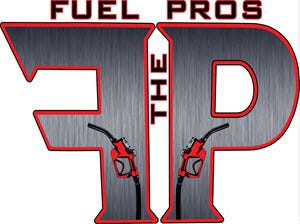
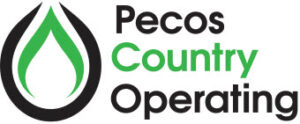
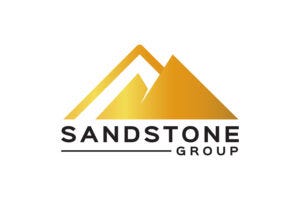

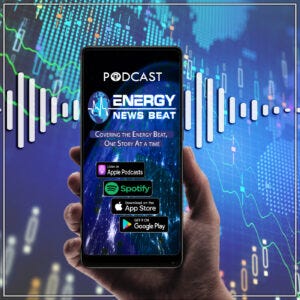



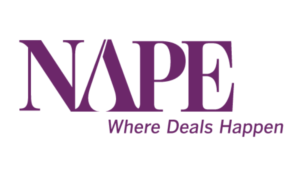

Sponsorships Are Available Or Get Your Own Corporate Brand Produced By Sandstone Media.
David Blackmon LinkedIn
The Crude Truth with Rey Trevino
Rey Trevino LinkedIn
Energy Transition Weekly Conversation
David Blackmon LinkedIn
Irina Slav LinkedIn
Armando Cavanha LinkedIn
